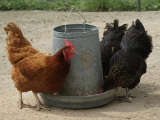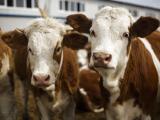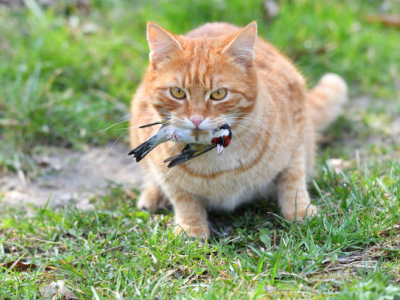Jun 30, 2008 (CIDRAP News) – Government officials in Hong Kong, in an effort to stem to spread of the H5N1 avian influenza virus, recently followed through with their proposal to ban live poultry from overnight stays in market stalls and retail outlets.
The revised food commerce law stipulates that live poultry sellers must cull any live birds that remain in stalls or shops by 8 pm every day and that live poultry are banned from the premises until 5 am the next day, according to a government press release. The ban goes into effect Jul 2.
"By banning live poultry stocking at retail outlets overnight, the chickens will be culled to avoid virus accumulation in the retail outlet environment, better protecting public health," the government said in the press release.
Merchants who don't comply with the ban can have their license revoked, be fined $50,000, and be jailed for 6 months, the press release said. Retailers are also required to cleanse and disinfect poultry areas every night and take safety precautions such as wearing protective gear, Hong Kong's government said. Those who don't comply face cancellation of their sales licenses and rent contracts.
The government's ban is the latest step in what might lead to a complete ban on live poultry sales in Hong Kong. In early June, animal health workers detected the virus in poultry feces at several market stalls. They did not say if the testing was done in response to sick or dead birds, and the source of the virus has not been determined.
The outbreaks have prompted a strong response from the government, which has proposed banning all sales of live poultry and discussed compensation packages with groups representing farmers and merchants.
However, the idea of phasing out live poultry sales has provoked anger among some trade groups, who believe that the government's compensation offer is unfair. Some poultry industry workers have threatened to release their poultry into the street. At a recent protest, some poultry industry workers threw eggs and empty chicken cages in front of a legislative building, according to a Jun 27 report from Channel NewsAsia, a news service based in Singapore.
Elsewhere, animal health officials in Pakistan on Jun 26 filed a report with the World Organization for Animal Health (OIE) confirming H5N1 avian influenza in an outbreak at a poultry farm in North-West Frontier Province, apparently putting to rest the local poultry association's claim that the virus subtype found in the birds was the lower pathogenic H5N9 instead of H5N1.
The tests confirming the H5N1 findings were performed at the National Animal Sciences Institute, a national reference laboratory for avian influenza, in Islamabad.
The outbreak, near Swabi, struck broiler flock of 3- and 6-week-old chickens, killing 4,000 poultry, according to the OIE report. The remaining 2,000 birds were destroyed. Officials isolated the farm for 1 month, are monitoring nearby areas, and have ordered vaccination of poultry within a 1-km radius of the outbreak area.
The source of the outbreak was probably contact with wild birds, the OIE report said.
In other developments, a representative of the United Nations Food and Agriculture Organization (FAO) warned that East Timor is at risk of H5N1 avian influenza outbreaks because of its proximity to Indonesia, the country that has been hardest hit by poultry outbreaks and human cases, according to a Jun 26 report from Integrated Regional Information Networks (IRIN), part of the UN Office for the Coordination of Humanitarian Affairs.
Chana Opaskornkul, an FAO emergency coordinator in East Timor, told IRIN that it was only a matter of time before the virus crosses the border and that there is little the government could do to prevent the virus from spreading. Indonesia is on East Timor's western border. One of East Timor's provinces is bordered on three sides by Indonesia.
Paulo Ferreira, a border patrol officer in East Timor, told IRIN that smuggling of fighting cocks could lead to H5N1 outbreaks, because the birds are cheaper to buy in neighboring Indonesia's West Timor province. "We have security patrols which go up and down the border, but the smugglers watch for the patrols and they know the schedules," he said.
East Timor is also vulnerable to H5N1 outbreaks because hospitals and clinics outside the capital Dili lack avian influenza plans, and farmers in rural areas have little access to veterinary services or information about the disease, the report said.
"We need to do more, and the government definitely needs to hire people to do more outreach," Opaskornkul told IRIN.
See also:
OIE reports on 2008 outbreaks
Jun 26 IRIN report




















